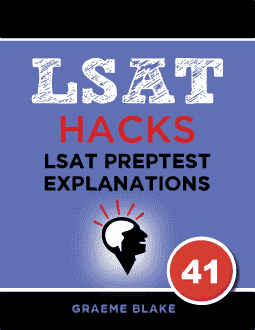QUESTION TEXT: The authorship of the Iliad and the Odyssey has long been…
QUESTION TYPE: Principle
CONCLUSION: We should accept the traditional view on Homer.
REASONING: There is no overwhelming evidence for the traditional view or the new hypothesis.
ANALYSIS: This question is a good example of the literalness of the LSAT. Technically the stimulus said, “Since there is no overwhelming evidence … we ought to accept” the traditional view.
So even if we had good but not overwhelming evidence for the new hypothesis, we should still accept the traditional view until evidence is overwhelming.
___________
- Suspending judgment would mean saying “we don’t know.” But the stimulus is concluding Homer was the author.
- CORRECT. It’s not all that intuitive, but this is what the stimulus said. Lack of overwhelming evidence means: Do not accept the new hypothesis, and accept the old one instead.
- This would lead us to believe both hypotheses, which is silly.
- The author highlighted no non-traditional evidence, yet believed the traditional view regardless.
- This is nonsense. We shouldn’t defer to tradition if only one hypothesis conflicts, but we should if two or more do? In any case, there is only one competing hypothesis in the stimulus.
Recap: The question begins with “The authorship of the Iliad and the Odyssey has long been”. It is a Principle question. Learn more about LSAT Principle questions in our guide to LSAT Logical Reasoning question types.


Leave a Reply